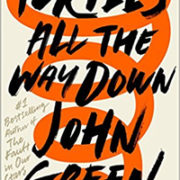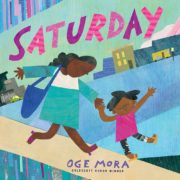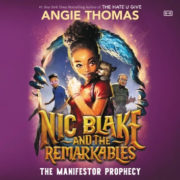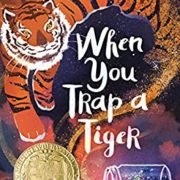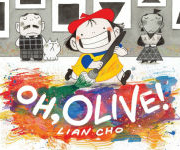POPCORN by Rob Harrell
All seventh grader Andrew Yeager, the protagonist of Rob Harrell’s Popcorn, wants is to have a nice picture for Picture Day this year. The new seventh grader struggles with anxiety and OCD anyway, but he has a lot on his plate lately. His mom is starting a new job and is under a lot of stress. His grandma, who he calls G, has moved into their two-bedroom apartment and Andrew is stuck sleeping on the couch. G also has Alzheimer’s and his once funny and lively grandma sometimes doesn’t even recognize him. Andrew’s mom took on a higher paying job to pay for G to move into a nursing home. Money has been a struggle for them, so this job has to work out. With so much out of his control, Andrew just wants to be sure that he takes a nice photo. His mom even splurged on an expensive button-up shirt from Banana Republic.
You see where this is going. Andrew hoped for a normal day that would end in a good picture and a clean t-shirt. Instead, he ends up navigating a day that might as well be titled Alexander and the Terrible, Horrible, No Good, Very Bad Day: the Middle School Years. Andrew is lucky to have his lifelong best friend Jonesy by his side, but he is worried that she is more interested in hanging out with her basketball teammates. His anxiety, which is depicted as an increasingly warmed popcorn kernel, only worsens as he worries about his G’s sudden disappearance, is bullied by Gene Phillips, and is inexplicably squirted in the face with ketchup, which triggers his germaphobia.
Harrell has made a name for himself with the Batpig series and Wink, which was nominated for Missouri’s Mark Twain Award. As he notes in the afterword, Popcorn was inspired by his own struggles with anxiety and OCD. The author marks the perfect balance between heavier topics and lighter moments. Harrell never chooses one over the other; as Andrew’s anxiety spirals into a panic attack, his art teacher is right there with him, co-regulating. Sometimes his anxiety makes him mean, but readers get to witness adults, and even a few of his peers, who step up and help him navigate difficult emotions. Andrew is also humorously perceptive about the people around him, though never in a way that feels cruel. These funny observations are reinforced through Harrell’s hand-drawn sketches, which appear on most pages. Sometimes they take the form of comics featuring his anxiety-ridden alter ego, Tense Kid. Other times, the drawings are small and act as a humorous commentary on the subject at hand. Andrew’s picture day may not go as he planned, and he may be struggling with mental health issues, but Popcorn does not feel especially heavy or too much for the average middle school reader. Through Andrew’s therapist, teachers, friends, and mom, readers will gain insight into coping skills and positive relationships. Not every reader will relate exactly to Andrew’s struggles, but every reader could use the reminder that, like Andrew, they will be okay.

